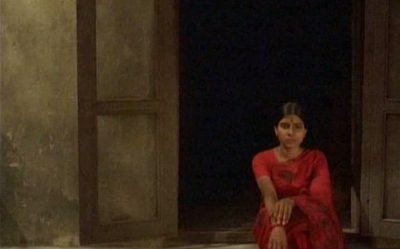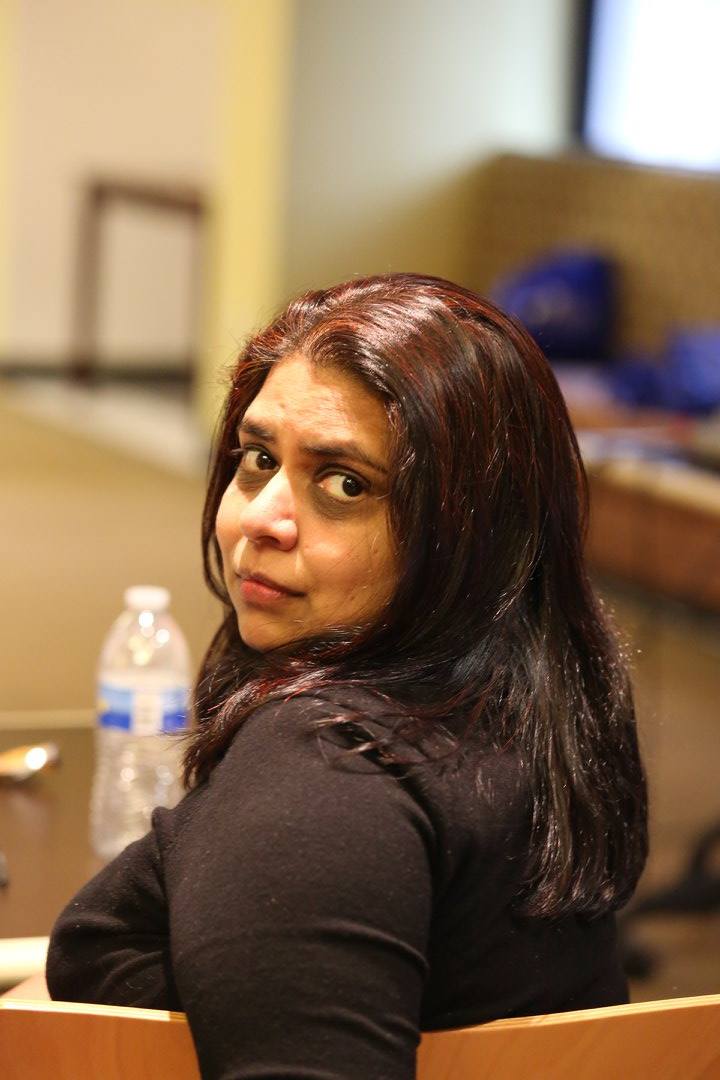
Cineflections-51
Maya Darpan – (The Mirror of Illusion) 1972, Hindi
-Manjula Jonnalagadda
“I have lived enough for the sake of others, now I will live my life the way I want to” – Taran (from the short story penned by Nilesh Varma)
Maya Darpan is a film made by Kumar Sahani based on a short story by Nilesh Verma. The film played at various film festivals, it won the Best Feature Film in Hindi award and the Best Cinematography award at the National Awards, along with the Filmfare’s Critic’s Choice award.
Kumar Sahani was a student of National Film and Television Institute at Pune. While he was a student at Institut des hautes études cinématographiques (a French film school) he assisted Robert Bresson on Un Femme Douce. He made several short films, documentaries, and Six feature films. Maya Darpan is his first feature film. His well known films are Kasba, Tarang, Khayal Gatha, and Char Adhyay. He also taught at his alma mater the National Institute of Film and Television as a Theorist of Cinema. His work is heavily influenced by Robert Bresson and Ritwik Ghatak. While he is one of the important figures of the parallel cinema movement, he is also the least known. He passed away in February of this year.
Nirmal Verma is considered as one of the writers who pioneered the Nai Kahani (new story) movement of Hindi literature.He lived in Prague for a few years where he initiated a program to translate several Czech works into Hindi. He wrote several short stories which are available in eight volumes, along with five novels, and nine non-fiction books.
The film is probably set in the 1950s right after independence, but the exact time period is not known. The film opens with a lullaby with the camera panning across a mansion to arrive at sleeping Taran. Taran is in her twenties and is sad and lonely. She lives with father and her aunt who is a childhood widow. Taran’s mother passed away longtime ago. Taran has a brother who lives in Assam on a Tea estate.
Taran’s father was a diwan at a muslim prince’s court where he was the only Hindu. He is old fashioned and still craves for his importance in the post independent India. Taran likes to walk around the town, or sleep in the afternoon. Her aunt takes care of the household duties. They have a young servant boy called Shambhu who lives with them. Taran is unmarried as her father wants only an upper class husband for her. Taran likes an idealistic Engineer who works in the town, who is an occasional visitor to the house. Taran’s brother fought with Taran’s father and left the house. While he doesn’t visit the family, he regularly writes to her sister. He invites Taran to come and stay with him.
Taran’s father is old fashioned and short tempered. Both Taran and her aunt want to stay away from him as much as possible, yet they don’t want to leave him to be all alone by himself. Taran feels so stifled that she cannot even cry freely in her own home. Taran’s aunt also acts as a communicator between Taran and her father. She is the mother figure for Taran.
The film takes everything from the story including the dialogue and adds a lot of symbolism to it. The story is a simple story of a woman who finds her surroundings oppressive and finds her courage to live her life. However the filming is not as simple.
The background is bare and minimal, no character other than Taran has a name. (This is the case even with the short story). The minimalism shows the influence of Bresson. Taran always covers her feet under the hem of her sari, as she doesn’t want to show them. Once she begins to find her voice, she does not deliberately try to cover them. The arrangement of the chairs on the patio somewhat mimics the mood of the film. This film has to be experienced.
The film is very well acted. I couldn’t get a lot of information about the actors, they are probably theater artists. Even though acting and dialog delivery is muted, one can see what is going on in the character’s mind.
Photography of K.K. Mahajan, who was a regular cinematographer for many parallel films, shot this film. Cinematography is exquisite! The score by Bhaskar Chandravarkar is also fantastic! Kumar Sahani loved classical music, his taste shows.
Watch this film for this is an experience and masterful debut of a visionary who needs more love!
*****

Manjula Jonnalagadda is from Hamsavaram, East Godavari Dist, and lives in Los Altos, CA. She is a Techie by profession and complex by nature. She loves to read; Chekhov, Kafka, KoKu and Sankaramanchi are among her long list of favorites. She is serious about films, and a regular at a few local Film festivals. Her other interests are quizzing and hiking. While she enjoys western classical music and all kind of vegetarian food sans beans and fake meat, she seeks comfort in Carnatic music and curd rice.
